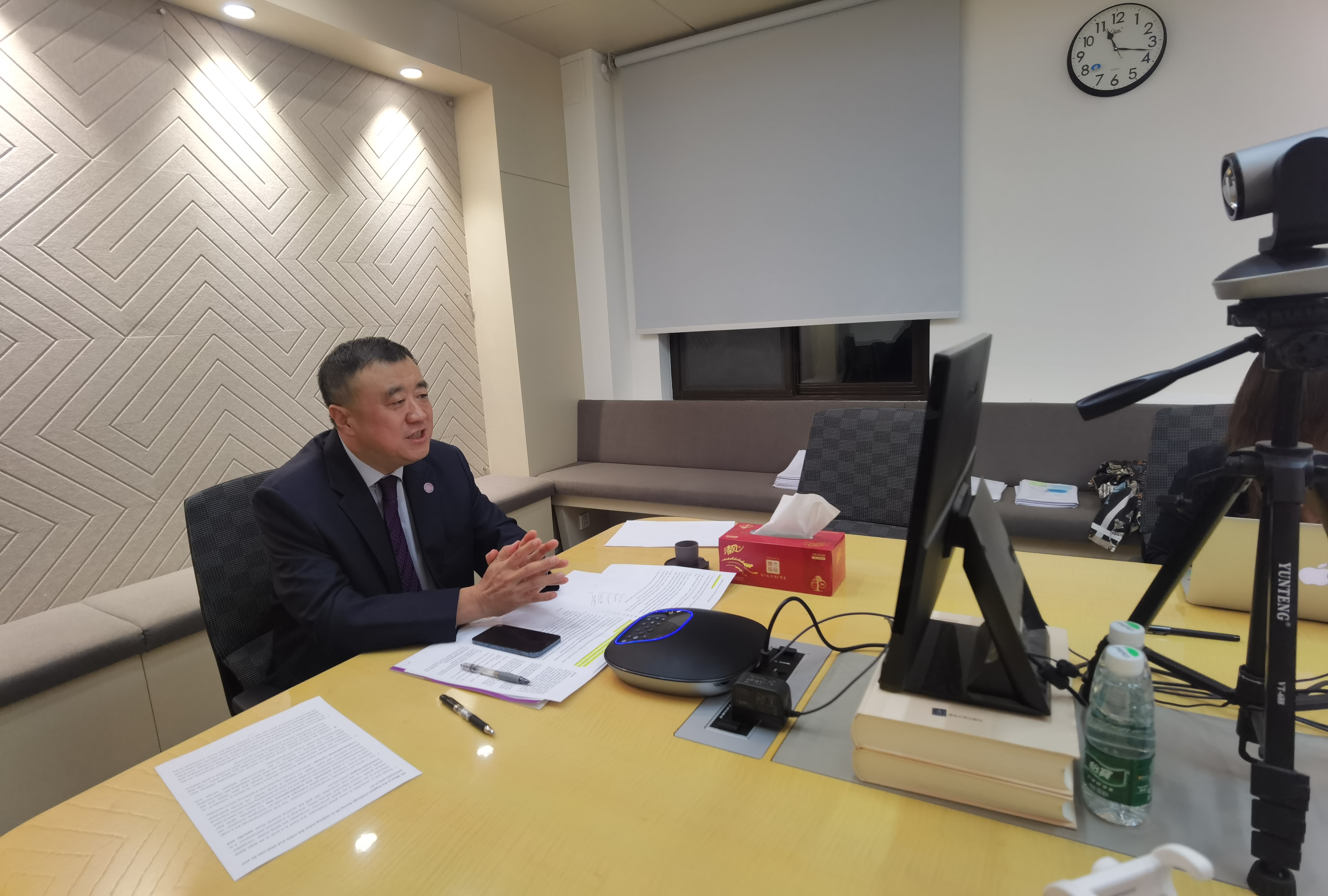Tsinghua University Vice President and Provost Yang Bin shared Tsinghua’s experience in collaboratively promoting the global transition to Net-Zero at the Times Higher Education (THE) Climate Impact Forum, on October 28.

Prof Yang Bin addresses the virtual Forum
The virtual Forum was organized in collaboration with the UN Environmental Program (UNEP) and took place on the sidelines of the 26th UN Climate Change Conference of the Parties (COP26) in Glasgow. Under the theme of “How can universities accelerate the global transition to net-zero”, the forum brought together leaders across higher education, industry and government to discuss how institutions can take action to respond to the climate crisis and achieve the potential change that is required.
Speaking at the Forum’s University Presidents’ Panel, Yang Bin said “Universities will play a key role during this critical decade. This is because young people play such a vital role in achieving net-zero: as contributors to innovative solutions; practitioners of carbon-neutral technologies; and, bearers of climate risks and losses”.
“People look to universities to solve global challenges, and there is a push to be even more responsive to the needs of the global community”, he added.
Yang Bin highlighted the Global Alliance of Universities on Climate (GAUC) and its Global Youth Summit on Net-Zero Future among other examples, to demonstrate Tsinghua’s efforts to instill greater youth engagement and international collaboration in this critical field. The Youth Summit’s theme, "Climate X", emphasizes the close interconnection between climate change and SDGs and the transformative impact that climate change holds over other aspects. Integrating with other trending global topics, the Summit is focusing on the interconnection between climate and biodiversity, health, energy and transportation.
“Activities like these empower young people to explore the relationship between their interests and climate change, and to contribute new ideas and action plans,” Yang added.
The vice president and provost explained that Tsinghua is committed to addressing climate solutions from a collaborative perspective and called for the Higher Education sector to foster more engagement with all sectors of society in a more systematic and multidisciplinary way, and in a way that empowers youth to drive the net-zero agenda.

Yang Bin was joined by fellow panelists at the Forum including, President of the University of British Columbia, Santa Ono; Vice-chancellor of the University of Cape Town, Mamokgethi Phakeng; Vice-chancellor of the University of Exeter, Lisa Roberts; Vice-chancellor of India’s TERI SAS, Eklabya Sharma; and, Policy Officer of the European Commission, Julie Anderson. The panel was moderated by the Vice President of European Students Union Zamzam Ibrahim.
Panelists shared their views on the critical role higher education has to play to help solve the multidimensional and urgent challenges facing humanity to both mitigate and adapt to climate change.
More information on the 26th UN Climate Change Conference of the Parties (COP26) can be found here and more information on the Global Youth Summit on Net-Zero Future can be found here.
Contributor: John Paul Grima
Editor: Li Han

